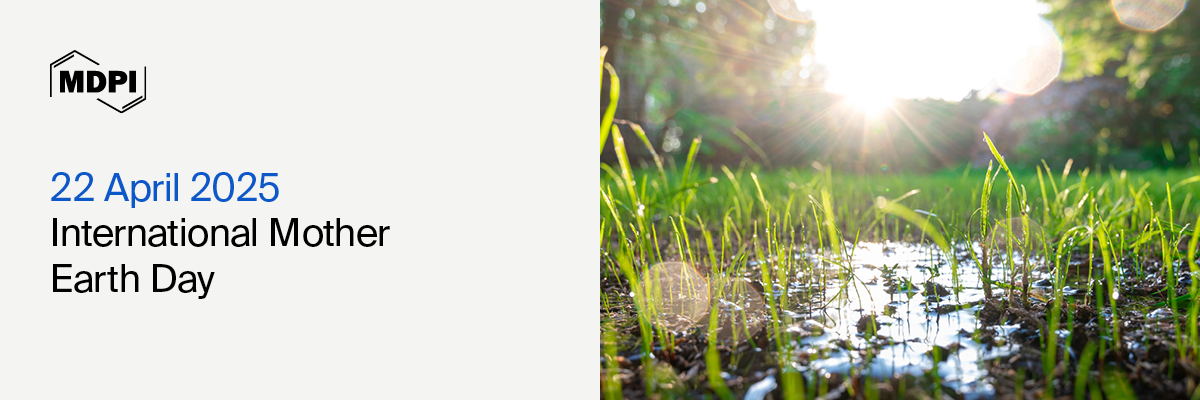
International Mother Earth Day, 22 April 2025
Mother Earth is sending us an urgent call to action as nature suffers from the devastating impacts of human activity. Our oceans are choked with plastic and acidifying, while extreme heat, wildfires, and floods have disrupted millions of lives. Climate change, deforestation, unsustainable agriculture, illegal wildlife trade, and other human-driven disruptions are accelerating the destruction of ecosystems and biodiversity. As we mark the third Mother Earth Day within the UN Decade on Ecosystem Restoration, it is clear that healthy ecosystems are vital for all life on Earth. Restoring damaged ecosystems can help end poverty, fight climate change, and prevent mass extinction, but success depends on everyone playing their part. Together, we must act now to heal our planet and secure a sustainable future for generations to come.
On this significant day, we are proud to present a curated collection of articles and initiatives dedicated to groundbreaking research and innovative solutions for protecting and restoring our planet. As we celebrate Mother Earth and reflect on the urgent need for action, these contributions highlight critical efforts to combat climate change, restore ecosystems, and promote sustainability. We invite readers to explore these resources and join us in our shared mission to safeguard the health of our planet for future generations. Together, we can make a lasting impact and ensure a thriving, resilient Earth for all.

|
Environmental & Earth Sciences |
Biology & Life Sciences |

Keynote Speakers
|
|
|
|
Prof. Károly Németh Institute of Earth Physics and Space Science, New Zealand |
Prof. Brendan Macke Griffith University, Australia |

“The Conservation of Biodiverse and Threatened Dry Rainforest Plant Communities Is Vital in a Changing Climate”
by Marion Howard, Hilary Pearl, Bill McDonald, Yoko Shimizu, Sanjeev Kumar Srivastava and Alison Shapcott
Conservation 2024, 4(4), 657-684; https://doi.org/10.3390/conservation4040040
“Ten Years of Mediterranean Monk Seal Stranding Records in Greece under the Microscope: What Do the Data Suggest?”
by Maria Solanou, Aliki Panou, Irida Maina, Stefanos Kavadas and Marianna Giannoulaki
Animals 2024, 14(9), 1309; https://doi.org/10.3390/ani14091309
“Groundwater Temperature Stripes: A Simple Method to Communicate Groundwater Temperature Variations Due to Climate Change”
by Manuela Lasagna, Elena Egidio and Domenico Antonio De Luca
Water 2024, 16(5), 717; https://doi.org/10.3390/w16050717
“Resilience of an Urban Coastal Ecosystem in the Caribbean: A Remote Sensing Approach in Western Puerto Rico”
by Yadiel Noel Bonilla-Roman and Salvador Francisco Acuña-Guzman
Earth 2024, 5(1), 72-89; https://doi.org/10.3390/earth5010004
“Particulate Matter in the American Southwest: Detection and Analysis of Dust Storms Using Surface Measurements and Ground-Based LIDAR”
by Joscelyne Guzman-Gonzalez, Rosa M. Fitzgerald, Nakul N. Karle, Ricardo K. Sakai and William R. Stockwell
Atmosphere 2024, 15(1), 110; https://doi.org/10.3390/atmos15010110
“An Imported Environmental Crisis: Plastic Mismanagement in Africa”
by Gilbert Moyen Massa and Vasiliki-Maria Archodoulaki
Sustainability 2024, 16(2), 672; https://doi.org/10.3390/su16020672
“The Effect of Habitat on Insect Movements: Experimental Evidence from Wild-Caught Butterflies”
by Matteo Marcantonio, Raluca Voda, Daniele Da Re, Quentin Igot, Roger L. H. Dennis, Aurélien Vielfaure, Sophie O. Vanwambeke and Caroline M. Nieberding
Insects 2023, 14(9), 737; https://doi.org/10.3390/insects14090737
“Artificial Reefs around the World: A Review of the State of the Art and a Meta-Analysis of Its Effectiveness for the Restoration of Marine Ecosystems”
by Carolina Bracho-Villavicencio, Helena Matthews-Cascon and Sergio Rossi
Environments 2023, 10(7), 121; https://doi.org/10.3390/environments10070121
“Topography, Slope and Geomorphology’s Influences on Shoreline Dynamics along Dakar’s Southern Coast, Senegal”
by Ibrahima Pouye, Dieudonné Pessièzoum Adjoussi, Jacques André Ndione and Amadou Sall
Coasts 2023, 3(1), 93-112; https://doi.org/10.3390/coasts3010006
“Potential Use of Industrial Biomass Waste as a Sustainable Energy Source in the Future”
by Tomasz Kalak
Energies 2023, 16(4), 1783; https://doi.org/10.3390/en16041783

|
“Nature-Based Solutions to Extreme Wildfires” Guest Editor: Adrián Regos Submission deadline: 15 June 2025 |
“Impact of Environmental Factors and Management Practices on Bee Health - 2nd Edition” Guest Editors: Ivana Tlak Gajger and Franco Mutinelli |
|
|
|





